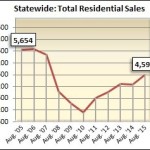No expenses spared on this top floor Golf Colony Villa. New HVAC system, new flooring inside and on private screened porch, new ship lap, board and batting, appliances, light fixtures, fans, counter tops, farmhouse sink, and much more. Popcorn ceiling removed, new paint on walls, ceilings and trim. New fireplace surround. Furnishings are negotiable. Truely a move in ready unit like no other. Pool for owners only, Gated community with Pickel ball courts, golf, Harbor Pointe Marina, Bluffs Daiquiri Bar, Copper’s Grill and the new Landing Grill at Harbor Pointe. Urgent care, pharmacy, dentist, restaurants, fitness center, grocery store multiple bars and more just outside the gates of Stillwaters. Short drive to Auburn. Nightly rentals allowed.
No expenses spared on this top floor Golf Colony Villa. New HVAC system, new flooring inside and on private screened porch, new ship lap, board and batting, appliances, light fixtures, fans, counter tops, farmhouse sink, and much more. Popcorn ceiling removed, new paint on walls, ceilings and trim. New fireplace surround. Furnishings are negotiable. Truely a move in ready unit like no other. Pool for owners only, Gated community with Pickel ball courts, golf, Harbor Pointe Marina, Bluffs Daiquiri Bar, Copper’s Grill and the new Landing Grill at Harbor Pointe. Urgent care, pharmacy, dentist, restaurants, fitness center, grocery store multiple bars and more just outside the gates of Stillwaters. Short drive to Auburn. Nightly rentals allowed.
CONDO INSIDE STILLWATERS
LISTED BY
DON FULLER/RHONDA FULLER
FULLER REALTY LAKE MARTIN
CALL OR TEXT 256.675.0067/334.319.0147
EMAIL DON
EMAIL RHONDA
If you’re entering the real estate market for the first time, you may find real estate professionals’ various titles a little confusing. Sometimes consumers use these titles interchangeably, but there are some important differences between the roles of the various professionals, as well as different requirements for using particular titles.
Titles for Real Estate Professionals
The real estate profession is regulated by state governments, which have different requirements for earning a license. In general, though, the titles you may come across include:
- Real estate agent: Anyone who earns a real estate license can be called a real estate agent, whether that license is as a sales professional, an associate broker or a broker. State requirements vary, but in all states you must take a minimum number of classes and pass a test to earn your license.
- REALTOR®: A real estate agent who is a member of the National Association of REALTORS®, which means that he or she must uphold the standards of the association and its code of ethics.
- Real estate broker: A person who has taken education beyond the agent level as required by state laws and has passed a broker’s license exam. Brokers can work alone or they can hire agents to work for them.
- Real estate salesperson: Another name for a real estate agent.
- Real estate associate broker: Someone who has taken additional education classes and earned a broker’s license but chooses to work under the management of a broker.
Working With a Real Estate Professional
While you are more likely to work directly with a real estate salesperson or an associate broker, some brokers provide services for buyers and sellers themselves. If you have hired a real estate agent to help you buy or sell a home, that agent typically reports to a broker. The broker handles the earnest money deposit and establishes the escrow account.
In addition, the broker bears responsibility for the actions of the real estate agents under his or her supervision. While the majority of real estate transactions go through without any glitches, a broker will step in if there are any problems with your home purchase or sale.
If you are unhappy with your real estate agent and cannot resolve the issues directly, your next step should be to talk with the broker to ask for help and perhaps another agent for you to consult.
Experience and Education
Real estate brokers not only have higher education requirements than real estate salespersons, they also must have experience working as an agent. For example, in Virginia the license requirements are as follows:
- A salesperson must take 60 hours of classes and pass an exam with both state and national sections.
- A broker must take 180 hours of broker-specific classes, pass an exam with both state and national sections, and have actively worked as a real estate salesperson for 36 of the previous 48 months.
When you are looking for a real estate professional, it is wise to work with a member of the National Association of REALTORS® who is committed to maintaining the professionalism of the real estate business. You can choose to work with a salesperson or a broker, but in any case you should take the time to interview your agent and ask for references.
If you want to work with someone new to the profession, you may want to ask to meet the broker as well so you can feel comfortable that someone with experience will be representing your interests.
By: Alabama Center for Real Estate (ACRE)
Sales: Alabama residential sales totaling 4,594 units in August reflect an increase of 9.6 percent growth from the same period a year earlier. Sales for the month continue to trend upward for the state, which bottomed out at 3,000 sales in August 2010, but has improved each year since. Sales are 21.5 percent above the August five-year sales average (’10-’14) of 3,781 units. Year-to-date sales through August are up 13.8 percent from 2014.
Forecast: August sales were 1.9 percent or 89 units above our monthly forecast. ACRE’s year-to-date sales forecast through August projected 28,071 closed transactions while the actual sales were 34,467 units, a 22.7 percent cumulative variance.
Supply: The statewide housing inventory in August was 33,203 units, a decrease of 1 percent from August 2014 and 21.2 percent below the month of August peak in 2007 (42,150 units). There was 7.2 months of housing supply in August (6.0+/- months NSA considered equilibrium), which represents a favorable drop of 9.7 percent from August 2014 (8 months). August inventory also decreased from July by 2 percent. This direction contrast with historical data that indicates August inventory on average (’10-’14) increases from the month of July by .4 percent.
Demand: July residential sales decreased 13.2 percent from the prior month. This direction contrasts with historical statewide data indicating that August sales on average (’10-’14) increase from the month of July by .4 percent. The average Days on Market (DOM) until a listing sold was 149 days, 8.2 percent faster than last year. Nationally, August sales were 6.2 percent above the same period last year (SA).
In August across Alabama, 76 percent (was 84 percent in July) of local markets report positive sales growth compared to last August. Sales during the month were 53.1 percent above the month of August bottom experienced in 2010 but remains 18.7 percent off the August 2005 peak.
Pricing: The August median sales price increased .4 percent from the same period last year. In August, 12 of 25 or 48 percent of local markets experienced price gains from August 2014. Keep in mind that this indicator can fluctuate from month-to-month due to sampling size of data and seasonal buying patterns. The August median sales price increased 2 percent from the prior month. This direction contrasts with historical data averages (’10-’14) reflecting that the August median sales price increases 5 percent from the month of July.
Seeking Balance: The metro markets in Alabama representing 70 percent of all sales continued to trend toward greater seller bargaining power with 6.5 months of supply. Outside of the metro markets, Alabama’s mid-sized markets are reporting 7.7 months of supply, while rural areas are still reporting 10 months of supply. With that said, there has being significant improvements from inventory peaks experienced during the recession. The supply of “quality” inventory in the past has impacted sales according to some local professionals with boots on the ground.
National Industry Perspective: “Home sales have trended up and inventories are lean, supporting strong home price appreciation. That price growth, driven by laggard supply response, helps build equity for existing owners but is a headwind for first-time buyers,” said Doug Duncan, senior vice president and chief economist at Fannie Mae.”Given significant uncertainties from Greece and China, continued global monetary easing, and an expected slow pace of monetary tightening by the Fed, we anticipate mortgage rates to rise only gradually through next year, which should continue to help support mortgage demand.”
By: Anne Miller for Realtor.com
In a sellers’ market, competition can turn fierce. Standing out becomes a challenge.
In these tight markets, smart strategies can make a big difference. Money helps, of course, but so does some creative and heartfelt communication—and having the right professional in your corner.
Follow these six tips, and you’re going to find success is just around the corner … along with your new house.
1. A good agent
An assertive, experienced REALTOR® will know the market well and will move quickly to present an offer to the seller.
They’ll be able to guide you through options that may seem a little crazy in a slower market—but could prove the difference between success and more house-hunting in a tight one.
2. An earnest deposit
A substantial deposit makes a big difference.
A reasonable deposit will be about 3% of the value of the property. A seller usually takes such an offer seriously and will feel confident you are committed to stand by this offer.
This could give your offer a winning edge. Submitting a pre-approval letter with the deposit puts your bid ahead of the others by showing the seller you have serious intentions.
3. Money talks
Of course, the more cash you can offer up-front can make a difference. too.
If you can afford a 30% or 40% down payment (or more), that may tempt sellers. And, in the long run, it will save you money on a mortgage, shortening the length of your loan and the interest you pay.
Few homeowners are likely to dismiss an all-cash sale. But let’s be honest—that’s a lot of dough that most people don’t have access to.
4. Get personal
Appeal to the seller’s emotions: include a personal letter in the offer to the person selling the property.
Explain why you want to buy the house and what you particularly like about it. Be as specific as possible. Appeal to what you may know of the property history.
Perhaps it’s a historic house the sellers lovingly restored, and you plan to keep it that way—tell them. Maybe you’re looking forward to raising your children in the specific community.
Other offers will appear impersonal in comparison.
5. Speed things up
Offer to close quickly. Most sellers want to make a speedy transaction—they’ll like this.
A standard closing period is about 30 days. If you can close in three weeks instead, this could convince the seller to accept your bid—even over one that offers more money.
Another winning negotiation strategy is to waive some of the contingencies usually included in a standard contract. For example, a winning offer can be one which agrees to shorten the period the buyer has to inspect a property for lead paint contamination.
Before you agree to waive any contingencies, however, you should check with your attorney.
6. Be nice
The sellers want a few more days in the house. Consider giving that to them rent-free.
There’s a few things ideally you’d like them to fix—but if they aren’t deal-breakers, consider letting that go.
Be friendly and personable, because if you prove to be someone they don’t mind dealing with, that could tip things in your favor, too.
Confirm Your Commitment
Ultimately, the question is this: how much do you want a new home?
In a sellers’ market, you’re probably going to have to give more, in many ways.
But hopefully your perseverance will pay off—for your family, and your bank account.
Updated from an earlier version by Wendy Dickstein.





